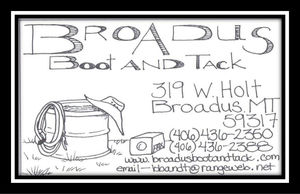Senior Center News
June 6, 2019
Submitted by Pat Ridenour
SMP, Medicare & Drug Diversion
Medical Identity theft occurs when a beneficiary’s Medicare # is misused either by a provider, a supplier, or by someone posing as the real beneficiary in order to receive medical care. A good way to prevent this is to use a paper shredder for any mail that needs to be thrown out that may have sensitive information. Also, never give that number out unless you know exactly who you are talking to and why they need it. In Montana, durable medical equipment has been received and paid for by Medicare for people who never ordered it and don’t need it. This is a type of Medicare Part B fraud that needs to be reported.
A type of Medicare Part D fraud includes drug diversion. This is the redirection of prescription drugs for illegitimate purposes. Office of Inspector General (OIG) investigations of drug diversion are on the rise and in many of the cases that OIG investigates, health care providers such as physicians or pharmacists participate in drug diversion schemes. Some of these providers have written hundreds or thousands of unlawful, medically unnecessary prescriptions which were then billed to Medicare.
One area of concern is prescription shorting. This is where a fraudulent pharmacy routinely dispenses prescriptions a few pills short. In a large prescription, the pharmacist hopes the beneficiary will not notice. If the pharmacist does this repeatedly, the pharmacy can steal a lot of money from Medicare or Medicaid because they are billed for the full amount.
In a similar scheme, a fraudulent pharmacy may fill a partial month’s drug supply and ask the beneficiary to come back for the rest. The pharmacist then bills twice in one month for the full amount.
A new prescription drug diversion tactic is to talk a beneficiary into getting a prescription from his physician for a narcotic. It is then filled and billed to Medicare or Medicaid. The beneficiary is then paid cash for the script and the drugs are cycled back through the pharmacy or sold on the street.
These examples are less likely to happen in Montana, which is a low fraud state where most people know their pharmacists, but we still need to be aware of what they are. In Montana, we are more likely to see prescriptions redirected through being stolen by people who have access to the pills. Examples have included; real estate agents, kids, grandkids (or their friends), and anyone who has been allowed in the house to use the restroom.
Kids across Montana have been found to steal pills from their grandparent’s one or two pills at a time. Because they know these are prescriptions you get from a doctor, they think they are safe. All it takes is one bad decision, or giving in to peer pressure, for this to happen to anyone’s kids.
And before you think to yourself that these kinds of things don’t happen in your town, two people in trusted positions as a physical therapist and a physical therapy assistant had been going into homes for months, maybe even years, stealing prescription pain pills in Scobey, Montana. In some instances, the stolen pills were replaced with lookalike Tylenol pills.
Most providers in Montana are honest; however, it only takes one bad apple, to replace your medication with lookalikes, or steal a small amount that you many not even notice.
Here are ways that you can protect yourself:
Do not keep medicines in plain view (sitting out on the kitchen table or even in the medicine cabinet). Lock them up.
Keep a log of what you have taken and count your pills daily or at least when you get them. You will know if you are running out ahead of time.
Take any unused or outdated medicines to your local police department instead of just throwing away or flushing.
And lastly, always read your MSN’s and Part D or Medicare Advantage explanation of benefits to make sure everything billed in your name is something you received.
We also have Deterra Medication Disposal Bags available to properly dispose of any unused or expired medications; these are very easy to use. Tear open the pouch and place the unused medications inside. Fill pouch halfway with warm water and wait 30 seconds. Seal pouch tightly & gently shake then dispose of in a normal trash. The carbon contained in the pouches deactivates the medication to make them safe to throw in the garbage. Please call 406-345-2120 to get some of these pouches.
You may contact the Senior Center for the Deterra Medication Bags. Call 436-2635.
Senior Medicare Patrol (SMP) empowers people to prevent healthcare fraud. MT SMP is a national program. We work with the Office of Inspector General who investigates fraud, the Department of Justice who prosecutes, and SMP is the third piece of the puzzle; we are the education and outreach piece to stop the waste, fraud, and abuse before it happens.
Medicare loses billions of dollars each year due to fraud, waste, errors, and abuse. For years, Medicare cards and numbers contained Social Security numbers. By now, everyone should have a new Medicare card with new numbers on them that are not connected to a person’s SSN. This alone will help protect your identity; however, it will not protect Medicare without your help.








Reader Comments(0)